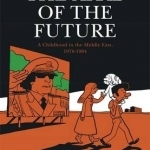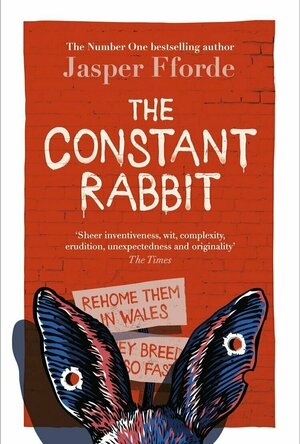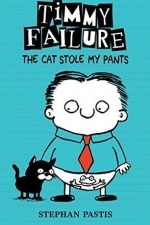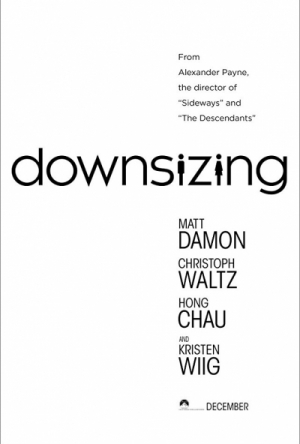
Himalayan Reset: Navigating Chaos through India, Nepal, and Tibet
Book
A regular guy, a pre-midlife crisis, and four months in the Himalayas - What could possibly go...
Travel Travelogue Memoir Outdoors

The Mammoth Book of Great British Humour
Book
A doorstopper of a collection of the very best of both contemporary and classic British wit and...
Janeeny (200 KP) rated The Constant Rabbit in Books
Jul 10, 2020
I’m a big fan of authors like Terry Pratchet, Robert Rankin, Jasper Fforde, and Tom Holt. Books written within the realms of the ridiculous, that make me smile, definitely get my vote. So when a new book by Jasper fforde comes out, about a society of anthropomorphised rabbits, I’m definitely on board.
The premise is really interesting. Decades ago an unexplained event led to a bunch of rabbits morphing into humanoid form. They’re still rabbits in essence, but just the size of humans and with the ability of human speech. Well these rabbits bred like the proverbial rabbit, and cut to present day where there are millions of anthropomorphised rabbits living in Britain. Still being the ‘sub-species’ though they live and work in a lesser capacity than most humans.
This book is a very intricately woven story about the prejudices that the rabbits face, their efforts to overcome it, and their ultimate acceptance that things are never going to change.
Interspersed with the usual Fforde humour, where Humans are often referred to as ‘Fudds’ (a reference to Elmer Fudd), and a detailed description of the ‘Beatrix potter’ clothing range. There are also some harsh ‘close to the bone’ observations. Our protagonist works for a certain government department as a ‘spotter’, his job is to go through the database and identify certain rabbits. It’s a special skill, as to most humans, ‘All rabbits look the same’.
At a time when the subject of racism is very much in the forefront of everyones minds and in the news every day, this is an interesting book. He’s not making light of the subject of racism, far from it. His jibes are more at the state of the UK and it’s various political and ethical issues.
For example, in the book there is a group called ‘TwoLegsGood’ a supremacist factor. This group, on finding out that a certain rabbit has committed an act that THEY consider a crime, drag him from his house in the middle of the night and ‘jug’ him! This involves upending him in a forty-gallon drum of cheap gravy that had been seasoned with bay leaves, celery, thyme, juniper berries and red wine (I see you smiling there!) It is later discovered to be a case of mistaken identity with TwoLegsGood showing no remorse, under the presumption he’s a rabbit and is bound to be guilty of something.
Funny right?
Now take out the fact the victim is a rabbit and the drum is filled with cheap seasoned gravy, and it’s not so funny anymore, it’s actually a serious and reprehensible crime.
That is the beauty of satire and the genius of this book.
A well thought out piece of satiric writing tackling the ‘hot potato’ subject of race. A light-hearted read with a serious message.
Insane Clown President: Dispatches from the American Circus
Book
One of the most important voices in contemporary American journalism - Independent Matt Taibbi is...
Hazel (1853 KP) rated Timmy Failure: The Cat Stole My Pants in Books
Sep 12, 2017
For fans of Diary of a Wimpy Kid (Kinney, 2004) is a juvenile series by American author, Stephan Pastis, about a young boy who believes he is the world’s greatest detective. A series that is continually growing, the sixth Timmy Failure story is now available for fans and new readers. Subtitled The Cat Stole My Pants, Timmy Failure embarks on an adventure of mystery and crime solving whilst getting himself into all sorts of mischief.
Emulating both real and fictional detectives, Timmy has established his own agency, Failure, Inc., of which he is the sole employee after the flight of his (imaginary) ex-business partner, Total the polar bear, who is currently seeking political asylum in Cuba. Unfortunately, Timmy has been forced to join his mother and Doorman Dave on their honeymoon in Key West, Florida, along with Doorman Dave’s nephew, Emilio.
“Crime doesn’t take a holiday. Neither does greatness.” Determined to continue solving crimes, Timmy hires Emilio as an unpaid intern and sets off searching for crimes, greatly over exaggerating every little piece of “evidence” he finds. However, it soon appears that someone is out to get Timmy and he, along with Emilio, is determined to find out whom.
Timmy is a melodramatic, unconventional child with a large ego and is constantly getting told off. From annoying adults to having his pants stolen by a polydactyl cat – or so he claims – there is no end to the hilarious situations he causes.
The cat that stole Timmy’s pants only makes a brief appearance in the book, therefore the subtitle is more to attract the attention of young readers with its silliness rather than be suggestive of a certain storyline.
Despite his grand claims, Timmy is not a very good detective and a lot of his unsolved crimes have been invented by his overactive imagination. This adds to the humour because, although he seems like an intelligent child, his ideas are completely silly.
Adorned with childish drawings and diagrams, Timmy Failure narrates the story from his subjective point of view, inflating his successes and blaming any failure on poor Emilio. No one takes Timmy seriously, which is something many of the target readers may appreciate, although they should also understand how futile Timmy’s attempts are at being a detective.
The storyline is not particularly clear until the final chapters of the book. Up until that moment, the book is full of disastrous, imaginary detective endeavours that prove Timmy to be nothing more than an annoying, inventive boy.
Some of the language may be above children’s reading capabilities, however, the humour is directly on their level. Whereas an adult may not find the idea of a cat stealing someone’s pants amusing, a child would find that hysterical.
There is no reason to read the Timmy Failure books in order, so if you, like me, read book six first, there is no problem. The stories are particularly aimed at young boys and will hopefully encourage the demographic to start reading more. Whilst it may not be a great feat of literature, it is a good enough introduction to the world of books.
Hazel (1853 KP) rated Timmy Failure: The Cat Stole My Pants in Books
Dec 17, 2018
For fans of <i>Diary of a Wimpy Kid</i> (Kinney, 2004) is a juvenile series by American author, Stephan Pastis, about a young boy who believes he is the world’s greatest detective. A series that is continually growing, the sixth <i>Timmy Failure </i>story is now available for fans and new readers. Subtitled <i>The Cat Stole My Pants</i>, Timmy Failure embarks on an adventure of mystery and crime solving whilst getting himself into all sorts of mischief.
Emulating both real and fictional detectives, Timmy has established his own agency, Failure, Inc., of which he is the sole employee after the flight of his (imaginary) ex-business partner, Total the polar bear, who is currently seeking political asylum in Cuba. Unfortunately, Timmy has been forced to join his mother and Doorman Dave on their honeymoon in Key West, Florida, along with Doorman Dave’s nephew, Emilio.
“Crime doesn’t take a holiday. Neither does greatness.” Determined to continue solving crimes, Timmy hires Emilio as an unpaid intern and sets off searching for crimes, greatly over exaggerating every little piece of “evidence” he finds. However, it soon appears that someone is out to get Timmy and he, along with Emilio, is determined to find out whom.
Timmy is a melodramatic, unconventional child with a large ego and is constantly getting told off. From annoying adults to having his pants stolen by a polydactyl cat – or so he claims – there is no end to the hilarious situations he causes.
The cat that stole Timmy’s pants only makes a brief appearance in the book, therefore the subtitle is more to attract the attention of young readers with its silliness rather than be suggestive of a certain storyline.
Despite his grand claims, Timmy is not a very good detective and a lot of his unsolved crimes have been invented by his overactive imagination. This adds to the humour because, although he seems like an intelligent child, his ideas are completely silly.
Adorned with childish drawings and diagrams, Timmy Failure narrates the story from his subjective point of view, inflating his successes and blaming any failure on poor Emilio. No one takes Timmy seriously, which is something many of the target readers may appreciate, although they should also understand how futile Timmy’s attempts are at being a detective.
The storyline is not particularly clear until the final chapters of the book. Up until that moment, the book is full of disastrous, imaginary detective endeavours that prove Timmy to be nothing more than an annoying, inventive boy.
Some of the language may be above children’s reading capabilities, however, the humour is directly on their level. Whereas an adult may not find the idea of a cat stealing someone’s pants amusing, a child would find that hysterical.
There is no reason to read the <i>Timmy Failure</i> books in order, so if you, like me, read book six first, there is no problem. The stories are particularly aimed at young boys and will hopefully encourage the demographic to start reading more. Whilst it may not be a great feat of literature, it is a good enough introduction to the world of books.

The Arab of the Future: Volume 1: A Childhood in the Middle East, 1978-1984 - A Graphic Memoir
Book
VOLUME 1 IN THE UNFORGETTABLE STORY OF AN EXTRAORDINARY CHILDHOODA GUARDIAN BOOK OF THE YEAR...

Dominicana
Book
SHORTLISTED FOR THE WOMEN'S PRIZE FOR FICTION 2020 'A story for now, an important story . . ....
Historical Fiction New York Literary Fiction Adult Fiction The Dominican Republic Coming of Age

GQ Magazine (UK)
Lifestyle and Magazines & Newspapers
App
Download the October edition of GQ, with exclusive iPad content. All the winners at the 20th annual...
Kirk Bage (1775 KP) rated Downsizing (2017) in Movies
Mar 3, 2020
In particular, Sideways and The Descendents from the same Director are two of my absolute favourite light comedy satires of the last 20 years, so I am always interested to see what he is up to. He often has an eye for subtlety and relationships that can break the heart with truth. There is some of that on display here too, it has to be said, however, you do wonder if the sci-fi / CGI element of Downsizing got a little bit in the way?
It isn’t quite the film it could have been, and at times does feel messy and rushed. It also doesn’t follow through entirely with its premise, and perhaps that is what disappointed a lot of the audience. The idea of the small leaving the world of the large behind in search of an environmental solution to the world’s problems is compelling as a joke and allegorical devise… But it just isn’t explored to its full potential, and the visual effects that allow us to see this are years behind what they should have been.
Saying that, the personal journey’s of the main characters are relevent, funny, relatable and often unexpected. Matt Damon is totally fine and well cast; Christoph Waltz adds a counter-point humour and point of view that balances the political ethics of the subject very well; and both Kristen Wiig and Udi Keir offer support of deft pathos in minor roles.
The film truly belongs to Hong Chau, however. Without her multi-layered and show-stealing turn as a Vietnamese refugee, who “downsized” to escape tyranny, losing a limb in the process, the film would be much less than it ends up being. For its many faults, her performance lifts it to something worth watching, as long as you can forgive the argument that her character is a too broadly drawn race stereo-type. Honestly, I can’t see the problem, because I think what she does with it makes the movie – but I am aware of the problems with it…
As a political message and environmental allegory, the film as a whole raises some interesting debate, sometimes because of its (ahem) shortcomings. It is neither intelligent enough, nor funny enough to be a “good” film. But it is an entertaining film. If only to see the sequence of legal and medical procedure that leads to the new world of being small!
What would we be prepared to do to find an answer to a dying world, economic failure and personal unhappiness? Would we risk everything to find ourselves and a solution? Or would we carry on regardless? Feeling lost in a world of fear and looming disaster is a subject worth exploring, and I feel Downsizing asks enough questions well enough to be at least seen and argued with. If that is the only purpose it serves then… OK by me.
The bottom line is, I didn’t hate it. To see it at a rating of 5.7 on IMDb is strange and actually very interesting. It is not a bad film. It just doesn’t completely succeed. I think that score says much more about how vitriolic and opinionated people are becoming about environmental issues. Which is good. A missed opportunity perhaps, and therefore it earns a place in the bin marked “admirable failures”. See it for yourself if you haven’t – it has cult status written all over it, in very small writing.



